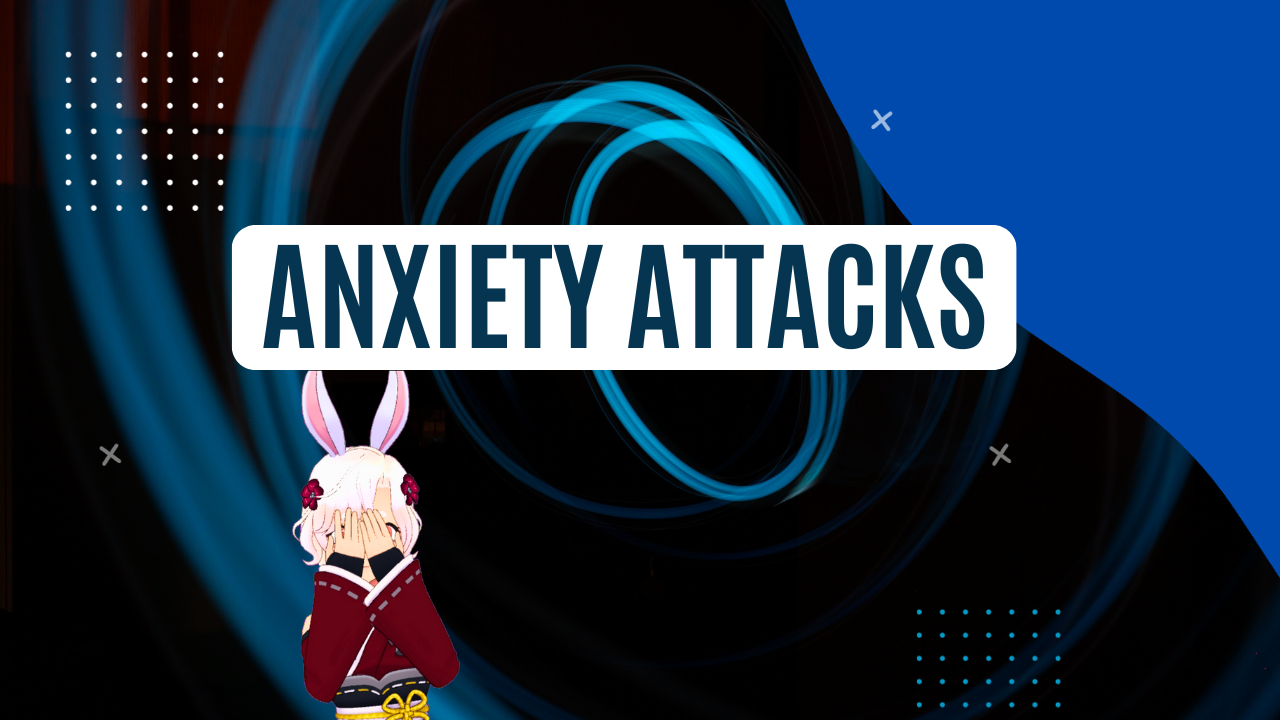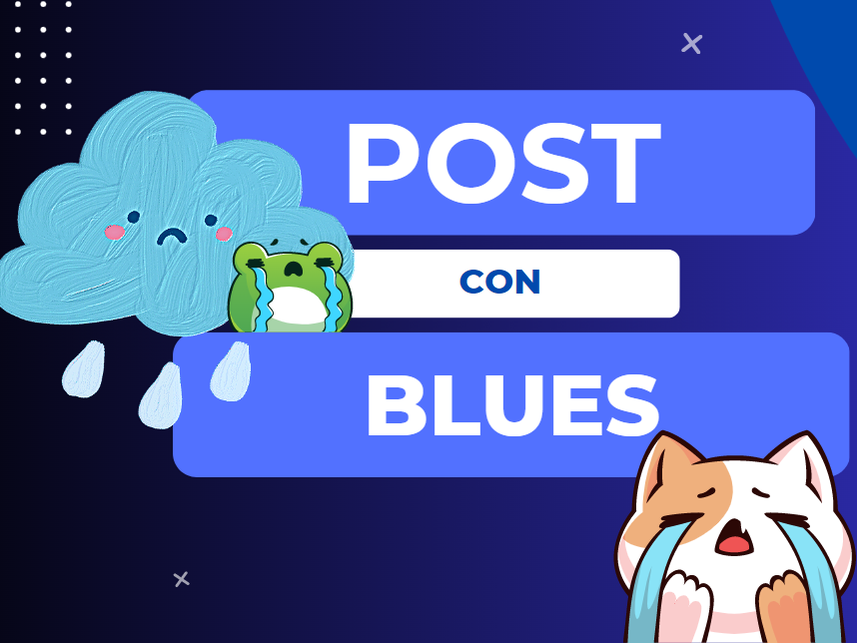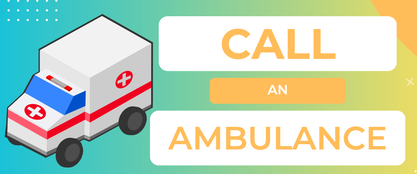Physical symptoms of an anxiety attack can include:
Psychological symptoms of an anxiety attack can include:
While there are no specific causes for anxiety attacks, they are understood to be a combination of biological vulnerabilities, ways of thinking, and environmental factors like social stressors (Edwards). Anxiety attacks can be caused by a stressful situation, receival of tragic news, or sometimes nothing at all. Keeping a pulse on your physical and emotional state can help you stay in control. Citation: 1. “How to Tell If You Are Having an Anxiety Attack.” Calm Clinic - Information about Anxiety, Stress and Panic, 10 Oct. 2020, www.calmclinic.com/anxiety/attacks/how-to-tell. 2. Roxanne Dryden-Edwards, MD. “Panic Attack: Symptoms, Treatment, Medication.” MedicineNet, MedicineNet, 28 Mar. 2023, www.medicinenet.com/panic_disorder/article.htm. Let’s talk about gloving for loving!
Condoms, when used correctly, are 98% effective in preventing unwanted pregnancy. They are also extremely effective in preventing sexually transmitted diseases. Using them correctly means using a new condom for every act of penetrative sex, including putting it on correctly and removing it correctly (see below)! I know, very few people actually *like* condoms. However, that’s often because we aren’t taught to use them correctly! So, Post-Con Depression is a real thing. I mean, you’re not going to find Post Con Blues in the DSM, but we know that coming down from the pure excitement and hilarity of the convention can leave one feeling temporarily worse than usual. Being surrounded by tons of fun, like-minded people, costumes, exhibits, panels, parties, your family of friends… What’s not to like? It’s hard to go back to real life after a weekend of escapism. Coming back to reality can underline some real feelings of sadness and discontent.
Plan social events with your friends. If you’re anything like me, you miss your friends after the con. Chances are they’re having similar feelings. Don’t be afraid to talk openly about those feelings. A little shared empathy goes a long way to making things better. If your friends aren’t available, join a Meetup or find activities with like-minded people. New friends means more future fun. That last sentence sounds like it should be a bumper sticker or something. The point is, you can always redefine your circumstances to make the next day better.
The ADA Says…
The Americans with Disabilities Act provides rules on service dogs as an accessibility avenue for folks with disabilities. There is a legal obligation to allow service dogs for folks who need them at public events like the conventions we serve. These rules outline a specific definition of service dog. To be classified as a service dog, the following criteria need to be met:
Asking About The Dog The ADA puts some restrictions on the kinds of questions you can legally ask about the dog in order to protect the human from privacy violations and harassment. Luckily, the two rules about this make sense and are easy to remember:
You may not ask what the disability is or for medical documentation, nor ask that the dog demonstrate the task. Service dogs are not required to be registered or wear a particular tag or harness, and you may not require such things of a service dog team. There are also limitations on the dog and its human. The service dog can be removed if it displays aggressive behavior towards others, is out of control, or isn’t housebroken. In general, the dog shouldn’t be separated from their human, but that option should be presented to the human to allow them to make the choice that’s right for them when possible. Dos and Don’ts Beyond any legalities, there are some basic dos and don’t for interacting with a service dog and their human:
Service Dogs Are Cute, But… Being supportive to service dogs is part of our role in providing first aid. Service dogs should never be separated from their human during provision of care. In the unlikely event that the human needs to be transported to the hospital by ambulance, ensure that the dog stays with them, or arrange for separate transport of the dog to the hospital. Every congoer should be aware of service dogs and how to conduct themselves in situations where such dogs are present. Service dog teams are there to have fun, just like us! You can find more information about the ADA’s provisions for service animals at their website. If UsagiMed is present at your convention, we encourage you to check in with your service dog. Usagi Medical Group volunteers are familiar with providing care to service dogs as well as their humans. Let us be involved in training your crew to handle these quadruped attendees!
#1: Deep Breathing Make a habit of deep breathing when you feel yourself getting overwhelmed. Much of our worries come from a downward mental slope – what if I can’t get to the grocery store on time? Then I won’t be able to get milk…then how will I make the homemade cookies I promised for my boss? Then what if he gets angry and starts looking at me worse, maybe demotes me even?. While these stresses begin as normal, casual worries, they later become panicked, less probable-to-occur concerns (ie: thinking your boss will demote you because you couldn’t bring homemade cookies like he wanted). When you notice that bubbling stress, attempt to nip it at the bud by closing your eyes and taking deep breaths. It can be harder to accomplish this later on, so building a habit of slowing down to breathe in for three seconds and breathe out for three seconds can be a major deterrent to an anxiety attack. #2: Try exercising at least 30 minutes a day If you deal with frequent/constant anxiety, try exercising at least 30 minutes a day. Harvard Health Publishing writes that exercise “releases mood-boosting chemicals called endorphins.”, which are proven to assist in relieving stress and frustration. As you exercise, you begin to focus more on the movement of your body and the world around you, rather than on the assignments you have due or the coworker that’s been bothering you. Gym memberships can be expensive and tedious to maintain, but luckily you don’t need fancy equipment to get these benefits. Your exercise can be any intensity, from taking a walk to playing a match of tennis, and still be equally effective in helping you decrease your general state of stress. #3: Cut the cord for 15 minutes a day Shutting off your phone and avoiding texts can be very daunting – trust us, we know – and with remote jobs becoming more and more of the norm, technology dependence is very real. However, finding a time to lay awake without your phone, TV, or laptop, even if it’s 15 minutes before going to bed, can actually help you destress. Having less notifications and apps to worry about can be great for personal health – gives you more time to focus on you rather than what revolves around you in your digital world. Sources:
> 5 Ways to de-stress and help your heart – https://www.health.harvard.edu/heart-health/5-ways-to-de-stress-and-help-your-heart
Prevent Emergencies, Duh
First, of course, it’s best to prevent emergencies. Entire books have been written on this topic. For the purposes of this blog, you should be prepared. Get a first aid kit and learn how to use it. Do a risk assessment of your home environment (and people) and figure out where the dangers are. Additionally, learning how to perform certain life saving procedures, like CPR and the Abdominal Thrusts Maneuver, can be crucial in sudden life or death situations where an immediate response is necessary. Get Ready But when you need to call an ambulance, there are several measures you can take prior to picking up the phone to make it easier for the ambulance (or emergency services) to assist you. Melissa Sawyer, Communications Specialist with Northwell Health Center for Emergency Medical Services, states that making sure your home can be found is one of the best ways to help the ambulance get the patient to the hospital quickly, safely, and securely. The first thing you must be able to share is the location of the emergency. One needs to be able to describe how to get the responders to where the emergency is. That may include an address, gate code, location inside of a structure etc. Many emergencies occur outside the home; always know where you are so you can request help accurately. Make sure that your house and the house numbers are clearly visible from the outside, unobstructed by bushes, trees, or any other physical barriers. If you are inside of a house or building with any flashlights, porch lights, or any items that emit powerful light, place them outside of your house to make sure that the ambulance can see your building address number. Additionally, hiding a key in front of your house can be very beneficial, since you can inform emergency responders over the phone of its location to let them gain entry to your home in the event you’re hurt inside your home. Share Good Information It’s important to remain calm and convey good information to emergency dispatchers when you call an ambulance. When the responders arrive, there are many tips to help ensure paramedics are able to do their job as efficiently and safely as possible. Important information includes:
You always want to make sure that you know any urgent information about the patient’s state, especially if they are unable to speak or are unresponsive, in order to quickly provide the responders with as much information as possible. Being able to relay to the medical professionals where the patient was and what they were doing in the moments prior to the incident, what the patient is experiencing, and whether or not this issue has happened before are all important for paramedics to know. Do your best to convey as much of the patient’s personal information, medical history, and medication names and dosages as possible. (Not to mention any known allergies.) This will allow the paramedics and emergency room staff to treat the patient without risking allergic reactions or prescribing treatment that cannot be mixed with medications that the patient is already taking. Call An Ambulance! Additionally, when you call an ambulance it’s crucial to watch for the incoming ambulance, and if possible, have someone stay near the street close to your location so they can direct the ambulance to the right house. Make sure there are no obstructions or obstacles blocking the paramedics from getting to your location, including cars, furniture, patio items, as well as dogs, cats, or other large animals. An emergency situation is no joke. While knowing to call 911 in a dire event is crucial, remembering these tips can make the difference between simply calling for help and getting the proper help for your loved one as efficiently as can be.
|









 RSS Feed
RSS Feed
